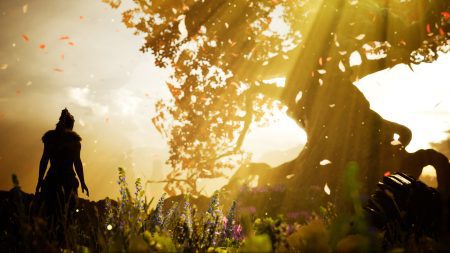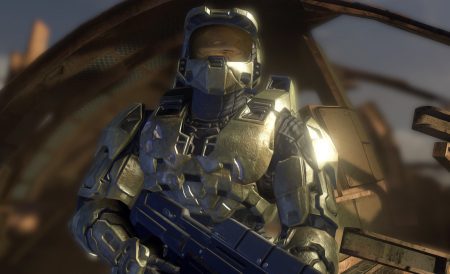Welcome to Punished Notes, Volume 32! In this edition (the first of 2024!), I’ll share my thoughts on Golden Sun’s storytelling, what I consider to be the best narrative mechanic of Baldur’s Gate 3, and some lightning round thoughts on a number of things…including, yes, the Grammy Awards. As always, thanks for reading!
Golden Sun and Plot vs. Story
One of my biggest pet peeves in video game discourse is when folks use the words “story” and “plot” interchangeably. “Most Zelda games barely have a story,” some might say, but this can only be accurate if one believes world-building, environmental design, character interactions, and mechanical integration have no meaningful attachment to or influence on the telling of that story.
In reality, most Zelda games have a straightforward plot, and the player experiences the story by exploring intricate dungeons, engaging with friendly NPCs, searching for hidden spaces and treasures, and partaking in a myriad of other side activities. The whole experience is the story; the plot exists as just one component.
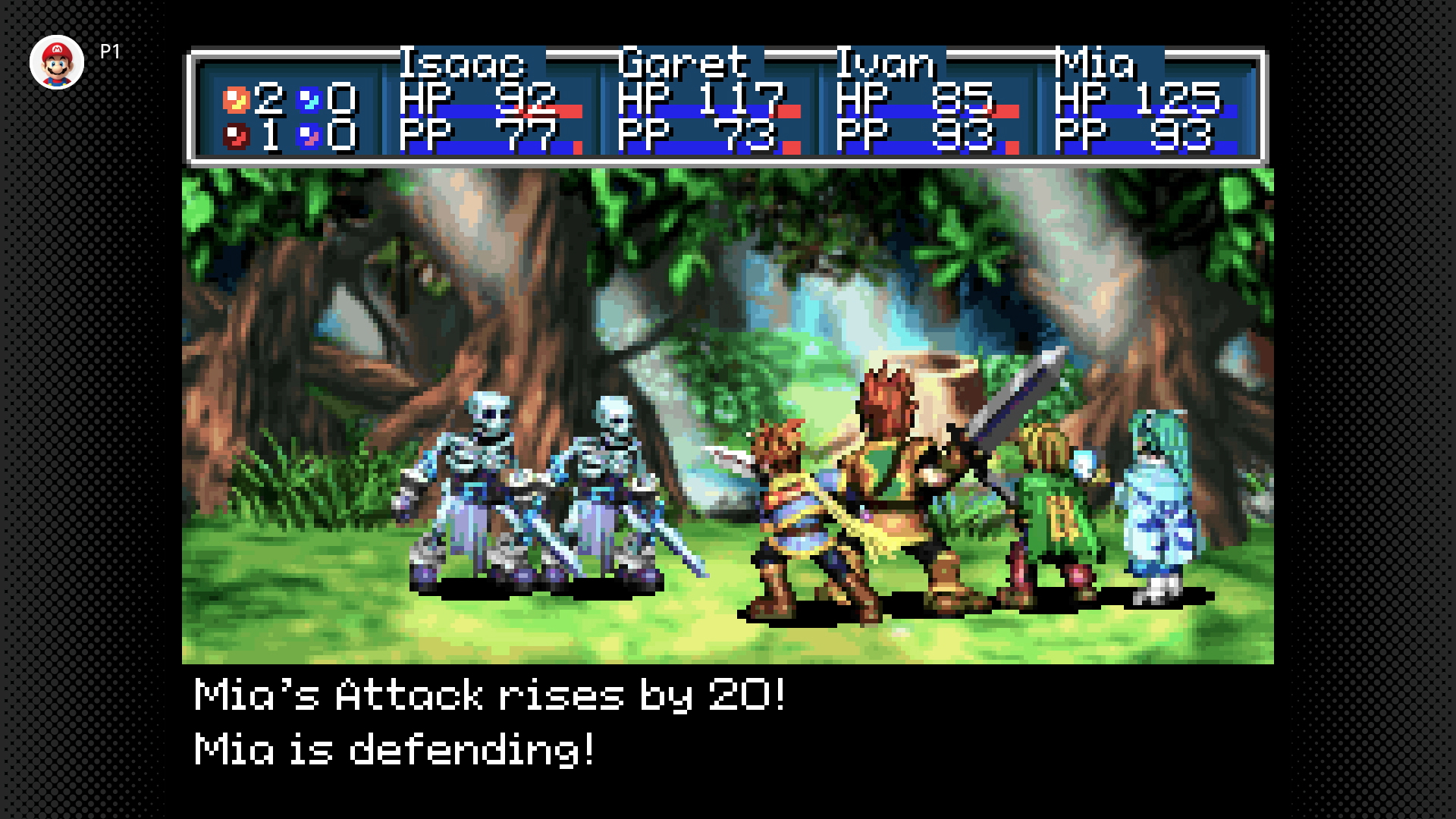
This particular pet peeve of mine has swirled in my head throughout my first-ever playthrough of Golden Sun, a classic role-playing game that launched in 2001 for the Game Boy Advance and was recently added to Nintendo Switch Online. While many consider Golden Sun one of the finest games on the handheld and a particularly notable title in its genre, I completely ignored it when it first released, and have decided to make it (and its sequel The Lost Age) key pillars of my personal backlog challenge for 2024.
Normally, this would be the time in a blog post where I explain the basic plot of a game so the reader has a cursory understanding of its premise. In this case, however, I feel no need to do so, since the actual plot of Golden Sun has played basically no role in my enjoyment of the experience.
Here’s all you need to know: Your team of bog-standard RPG characters must band together to stop bad people from doing something bad, and on the way you grab new abilities, fight a bunch of giant monsters, and visit a variety of fun and one-dimensional townsfolk.
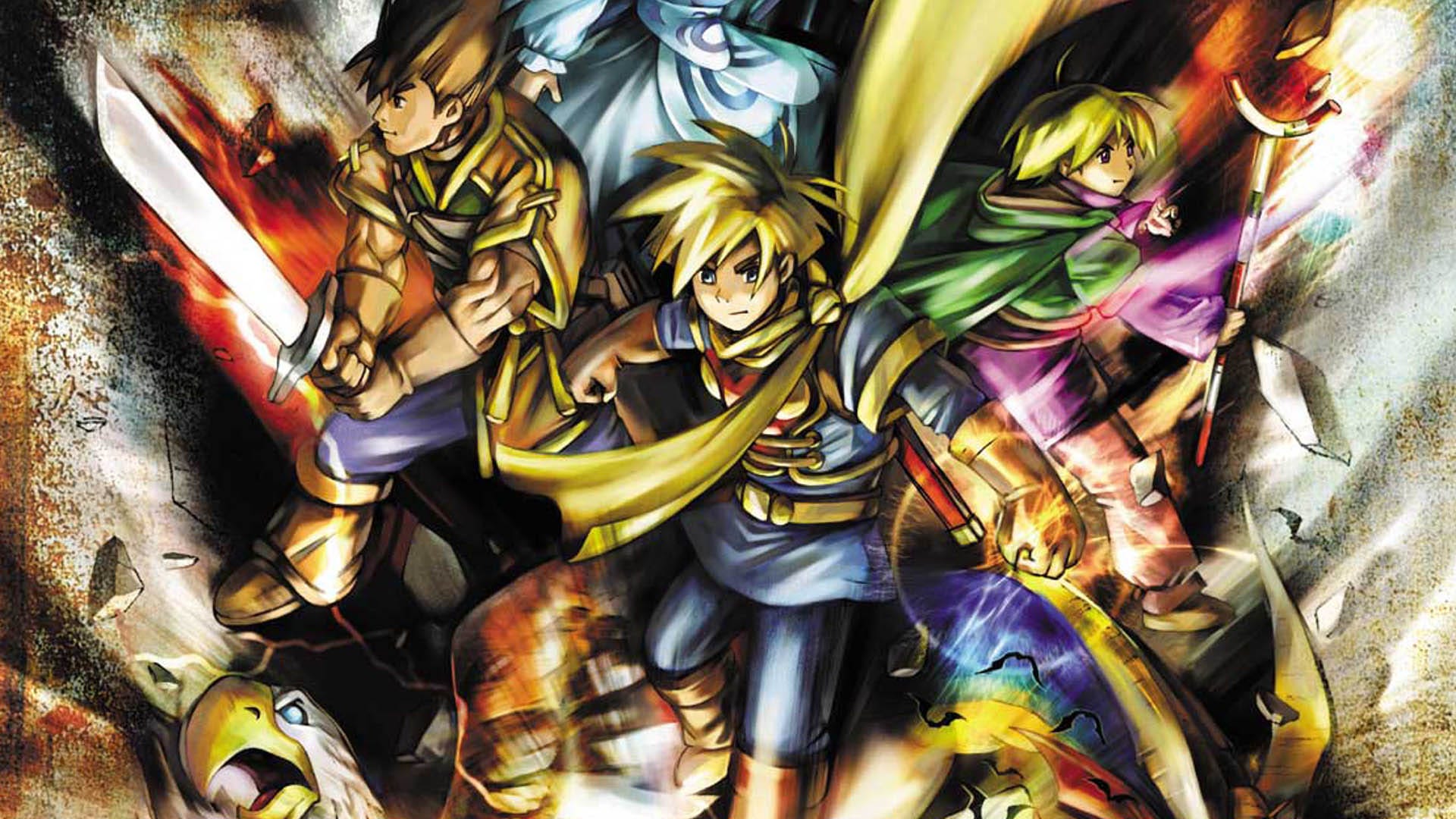
Golden Sun certainly has a plot riddled with proper nouns and NPCs rambling on about the importance of stopping malefactors from doing whatever it is they intend to do. But as I play through the game itself, those plot components don’t actually feel essential to the story as I am personally experiencing it.
Golden Sun’s story, as I see it, revolves around a group of adolescents with unique powers learning to harness those powers for good, manipulating the world around them in ways others can’t fully understand, and consistently finding ways to survive increasingly hostile circumstances. In the case of Golden Sun, what I have experienced as the player matters more to me than whatever flimsy plot developments the game throws at me to justify my squad’s movements and actions.
If I’m being honest, I could say the same thing about many other video game “stories” I cherish. Most actual plot points in The Witcher 3: Wild Hunt completely eluded me, yet Geralt’s dalliances with Yennefer, complex paternal relationship with Ciri, and inability to remain politically neutral in increasingly tumultuous times provided immense narrative satisfaction. The Legend of Zelda: Ocarina of Time certainly lacks the detailed plot structure of, say, The Last of Us, but nothing from any Naughty Dog title is quite as emotionally and narratively evocative as the Forest Temple or Desert Colossus. Maybe it’s better to examine video game stories from this perspective rather than focusing on just the plot itself.
 Some gameplay spoilers below for the first two acts of Baldur’s Gate 3. If you want to read without seeing the spoilers, keep scrolling until you see the “Spoilers Done” image.
Some gameplay spoilers below for the first two acts of Baldur’s Gate 3. If you want to read without seeing the spoilers, keep scrolling until you see the “Spoilers Done” image.

Baldur’s Gate 3 and the Temptation of the Tadpoles
Spoilers for the first two Acts of Baldur’s Gate 3.
Similar to what I said previously about Golden Sun, I’m not fully sure I actually care that much about the core narrative premise of Baldur’s Gate 3. For the most part, the (really, really good) RPG excels mostly in moment-to-moment interactions between party members, bizarre encounters with various overworld denizens, and its complex and intricate combat system.
In particular, however, the title’s story reaches its zenith because of one particular set of gameplay choices: the Illithid Powers, which the player can only gain by purposefully infecting and corrupting their own brain.
The plot centers on the player and their various squadmates—all infected with mind flayer tadpoles—trying to figure out how to remove such parasites from their brains, as well as why they haven’t fully succumbed to the tadpoles’ corruption just yet.
Early in their journey, they learn that the Mind Flayers’ tadpoles have given them special Illithid abilities, the first one being the ability to read and control certain creatures’ minds. At this very moment, the game’s narrator informs the player that whenever they find another tadpole, they have the opportunity to expand their repertoire of Illithid Powers in exchange for further corrupting their brains.
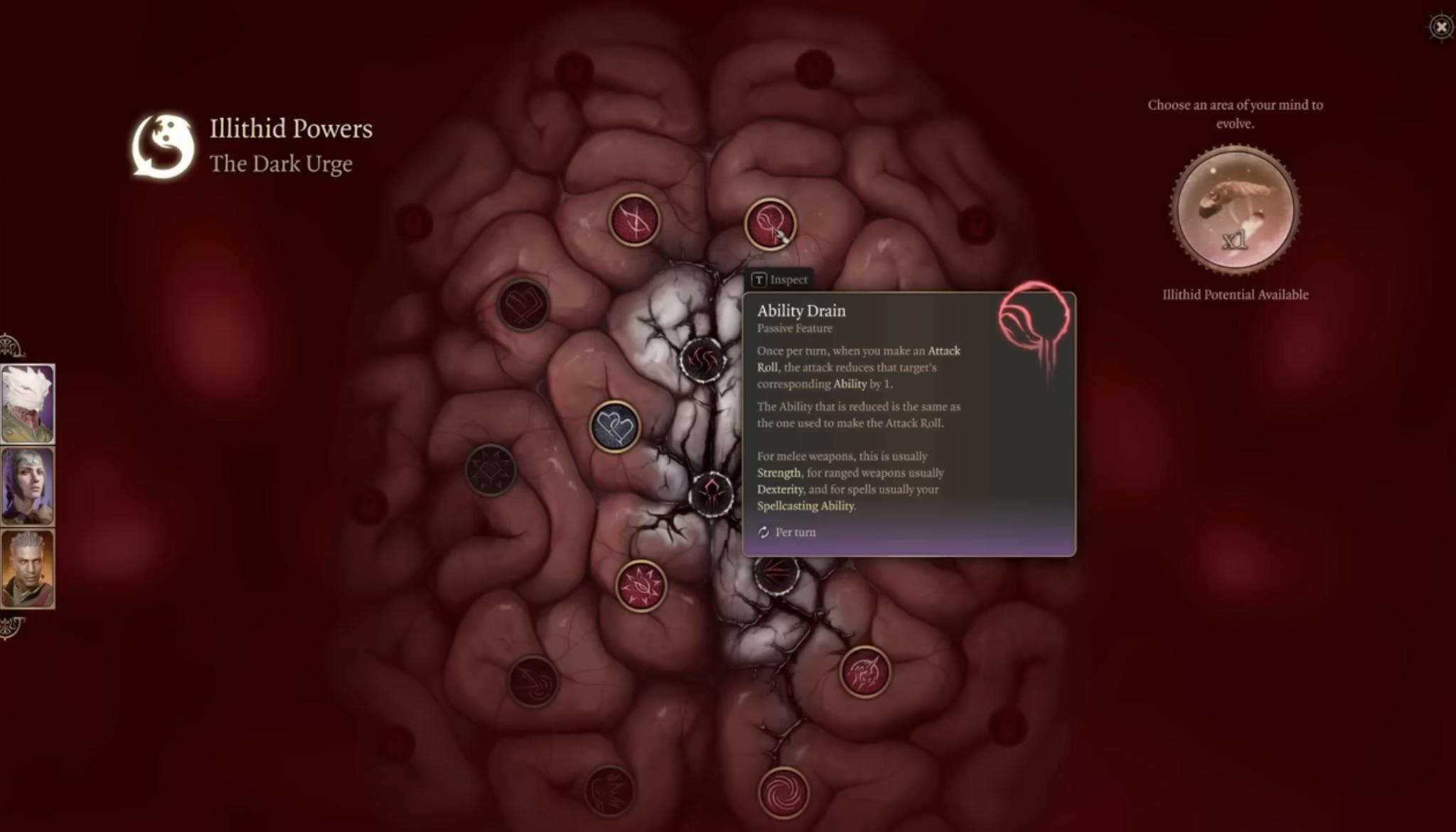
Like any choice-based RPG, Baldur’s Gate 3 lets players live by their own preferred code of morals and ethics. Typically, though, such games explain the consequences of such choices with narrative outcomes rather than mechanical ones. In BG3, however, choosing to live a virtuous and heroic lifestyle must compete with the temptation to give yourself bonus psychic abilities and the chance to attack multiple times in one turn. Sure, doing so risks rotting yourself from within, but the added abilities make your journey easier—and, honestly, more fun.
Critics and players alike have raved about Baldur’s Gate 3 and how it expertly adapts the fundamentals of Dungeons & Dragons into an AAA gaming experience, but the quandaries that come with the Illithid Powers are what truly elevate the game beyond “D&D with a controller.”
The constant tension between trying to fix myself while embracing my newfound abilities has become the focal point of my experience with Baldur’s Gate 3. It’s at the point where I’m not even trying to achieve a certain plot outcome; I’m just trying to identify what may become my Illithid breaking point.

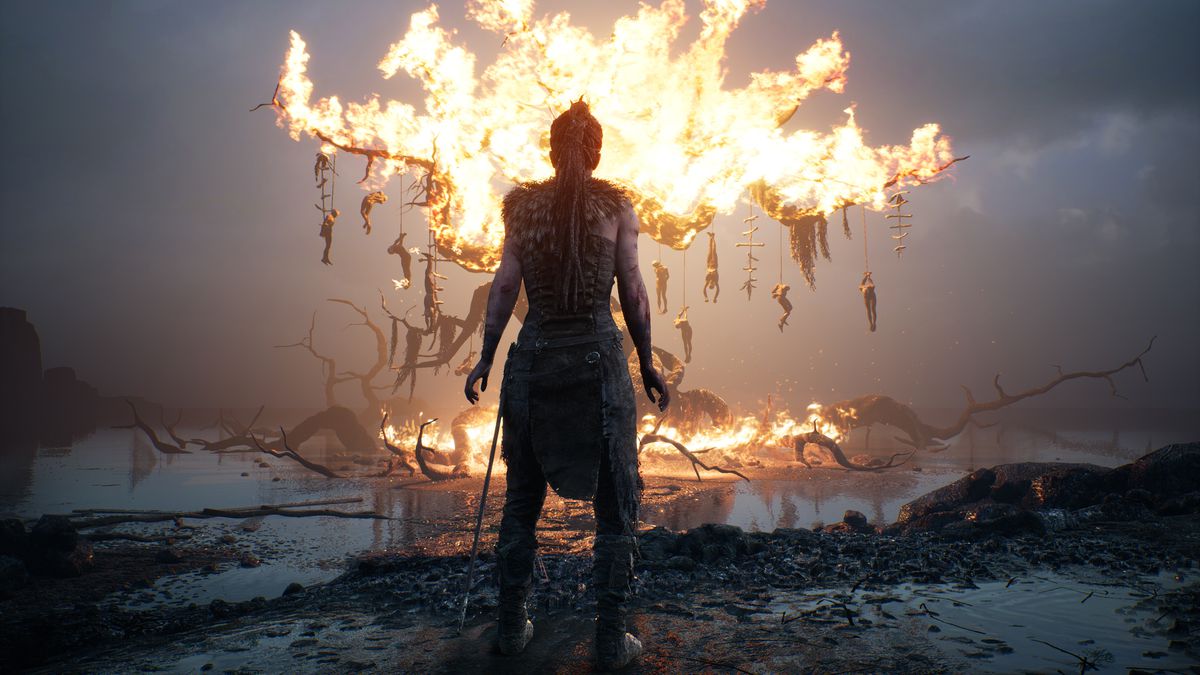
LIGHTNING ROUND!!!!!!!!!!!!!!!!!!!!!!!!!!!!!!!!
- One more New Year’s Gaming Resolution that I forgot to mention in my recent post: I’m trying to commit to actively playing no more than two RPGs at any given time. For example, since I just completed Golden Sun and still have a ways to go with Baldur’s Gate 3, I have to make a conscious decision about whether to start Persona 3 Reload and focus on that for a while or wait until Final Fantasy VII Rebirth comes out and go with that. It’s all too much.
- Speaking of which, I’d really appreciate it if any major new releases in the next few months were NOT big RPGs. Between BG3, P3R, FFVII Rebirth, and Dragon’s Dogma 2, who has time for all of this?
- I’m about halfway through Hellblade: Senua’s Sacrifice (which I’m playing in anticipation of the release of Senua’s Saga: Hellblade II later this year), and so far it’s a fairly astounding experience. The constant voices in swirlings in the player’s head as they attempt to do basic video game activities (swordplay, puzzle solving, climbing) creates a level of immersion and tension I typically only see in short, walking simulator-type indies like Firewatch and What Remains of Edith Finch. All of a sudden, I can’t wait for the sequel!
- I played one hour of Palworld, and you know what? I kind of hate it. To be honest, I’m not too bothered by how it rips off Pokémon and how it just adds survival mechanics. I just really dislike how so many games rely so heavily on crafting and resource management that the actual fun feels like a reward for the grind rather than the crux of the experience.
- A nice recent development from Nintendo has been bringing back limited-time Spirit events to Super Smash Bros. Ultimate, with spirits even coming from games like Hades and 13 Sentinels: Aegis Rim. These sudden additions to the Spirit Board have been the perfect thing to bring me back to Ultimate after some time away, and I hope Nintendo keeps this up as long as they can.
- Meanwhile, I got back into playing Super Smash Bros. Melee last month for the first time in what feels like 15 years, and obviously I had a fantastic time with it. Still, while I will always cherish Melee over every other game in the series, I’m now more convinced than ever that Ultimate is, for the most part, a better video game. Melee is a more competitive fighter and probably serves as the greatest glow up from first to second game in a franchise, but Ultimate feels more complete and balanced.
- Last week, everyone seemingly got together to participate in one of America’s greatest traditions: watching the Grammy Awards (or at least following the events of the show on social media) largely for the purpose of saying your favorite artist got robbed or complaining about The State of Pop Culture Now. I don’t have much to add to either of these discussions (personally, I don’t care about the Grammys and never really have), but I thought it would be fun to remind people of how many of the most famous and influential musicians of the past century have never taken home an award. Some standouts include: Snoop Dogg, Bjork, Diana Ross, Tupac Shakur, Queen, The Beach Boys, Sammy Davis Jr., Morrissey, Run-DMC, Jimi Hendrix, Janis Joplin, Guns N’ Roses, The Who, The Ramones, The Notorious B.I.G., The Grateful Dead, and Bob Marley. The silliness is nothing new!
Sam has been playing video games since his earliest years and has been writing about them since 2016. He’s a big fan of Nintendo games and complaining about The Last of Us Part II. You either agree wholeheartedly with his opinions or despise them. There is no in between.
A lifelong New Yorker, Sam views gaming as far more than a silly little pastime, and hopes though critical analysis and in-depth reviews to better understand the medium's artistic merit.
Twitter: @sam_martinelli.








